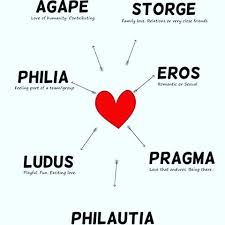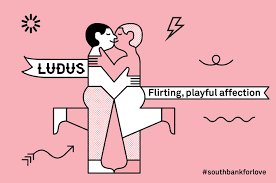LOVE SPELLS AND CHARMS| INDIAN SPIRITUAL TEMPLE OF LIGHT
LOVE SPELLS AND CHARMS| INDIAN SPIRITUAL TEMPLE OF LIGHT talisman is specially prepared for you as a man or a woman for personal good luck and love attractions. As a woman , this talisman will help you to attract your hearts desired kind of man that is rich, successful, famous and outstanding , who will be humble, caring, will always love and listen to you, also it will help you to control your lover.
As a man, this talisman will help you to get your heart desire, the kind of woman you want and need. It will give you luck in such a way that any woman of your choice that you approach for a relationship will always say YES and agree to your proposal. It will make any woman you come across fall deeply in love with you, whatever you request of her must be done and she will always listen to your voice alone. Even if she was in a relationship before you approached her , she will listen and always choose you over anyone else.
You will feel loved in the way you’ve never felt.
Everyone seems to be hankering after romantic love, but few of us realize that far from being timeless and universal, romantic love is in fact a modern construct, one that emerged in tandem with the novel. In Madame Bovary (1856), itself a novel, Gustave Flaubert tells us that Emma Bovary only found out about romantic love through ‘the refuse of old lending libraries’. These books, he wrote were all about love and lovers, damsels in distress swooning in lonely lodges, postilions slaughtered all along the road, horses ridden to death on every page, gloomy forests, troubles of the heart, vows, sobs, tears, kisses, rowing-boats in the moonlight, nightingales in the grove, gentlemen brave as lions and gentle as lambs, too virtuous to be true, invariably well-dressed, and weeping like fountains.
LOVE SPELLS AND CHARMS| INDIAN SPIRITUAL TEMPLE OF LIGHT
But there are many other ways to love, not all of which are consistent or consonant with romantic love. By preoccupying ourselves with romantic love, we risk neglecting other types of love that are more readily accessible and that may, especially in the longer term, prove more healing and fulfilling.
The seven types of love discussed below are loosely based on classical readings, especially of Plato and Aristotle, and on J.A. Lee’s 1973 book Colors of Love.
1. Eros
Eros is sexual or passionate love, and is the type most akin to our modern construct of romantic love. In Greek myth, it is a form of madness brought about by one of Cupid’s arrows. The arrow breaches us and we ‘fall’ in love, as did Paris with Helen, leading to the Trojan War and the downfall of Troy and much of the assembled Greek army. In modern times, Eros has been amalgamated with the broader life force, something akin to Schopenhauer’s will, a fundamentally blind process of striving for survival and reproduction. Eros has also been contrasted with Logos, or Reason, and Cupid painted as a blindfolded child.
2. Philia
The hallmark of philia, or friendship, is shared goodwill. Aristotle believed that a person can bear goodwill to another for one of three reasons: that he is useful; that he is pleasant; and, above all, that he is good, that is, rational and virtuous. Friendships founded on goodness are associated not only with mutual benefit but also with companionship, dependability, and trust.
For Plato, the best kind of friendship is that which lovers have for each other. It is a philia born out of Eros, and that in turn feeds back into Eros to strengthen and develop it, transforming it from a lust for possession into a shared desire for a higher level of understanding of the self, the other, and the world. In short, philia transforms Eros from a lust for possession into an impulse for philosophy. Real friends seek together to live truer, fuller lives by relating to each other authentically and teaching each other about the limitations of their beliefs and the defects in their character, which are a far greater source of error than mere rational confusion: they are, in effect, each other’s therapist—and in that much it helps to find a friend with some degree of openness, articulacy, and insight, both to change and to be changed.
3. Storge
Storge (‘store-gae’), or familial love, is a kind of philia pertaining to the love between parents and their children. It differs from most philia in that it tends, especially with younger children, to be unilateral or asymmetrical. More broadly, storge is the fondness born out of familiarity or dependency and, unlike eros or philia, does not hang on our personal qualities. People in the early stages of a romantic relationship often expect unconditional storge, but find only the need and dependency of eros, and, if they are lucky, the maturity and fertility of philia. Given enough time, eros tends to mutate into storge.
4. Agape
Agape is universal love, such as the love for strangers, nature, or God. Unlike storge, it does not depend on filiation or familiarity. Also called charity by Christian thinkers, agapecan be said to encompass the modern concept of altruism, defined as unselfish concern for the welfare of others. Recent studies link altruism with a number of benefits. In the short term, altruism leaves us with a euphoric feeling—the so-called ‘helper’s high’. In the longer term, it is associated with better mental and physical health, as well as longevity. At a social level, altruism serves as a signal of cooperative intentions, and also of resource availability and so of mating or partnering potential. It also opens up a debt account, encouraging beneficiaries to reciprocate with gifts and favours that may be of much greater value to us than those with which we feel able to part. More generally, altruism, or agape, helps to build and maintain the psychological, social, and, indeed, environmental fabric that shields, sustains, and enriches us. Given the increasing anger and division in our society, and the state of our planet, we could all do with quite a bit more agape.
5. Ludus
Ludus is playful or uncommitted love. It can involve activities such as teasing and dancing, or more overt flirting, seducing, and conjugating. The focus is on fun, and sometimes also on conquest, with no strings attached. Ludus relationships are casual, undemanding, and uncomplicated but, for all that, can be very long-lasting. Ludus works best when both parties are mature and self-sufficient. Problems arise when one party mistakes ludus for eros, whereas ludus is in fact much more compatible with philia.
6. Pragma
Pragma is a kind of practical love founded on reason or duty and one’s longer-term interests. Sexual attraction takes a back seat in favour of personal qualities and compatibilities, shared goals, and making it work. In the days of arranged marriages, pragma must have been very common. Although unfashionable, it remains widespread, most visibly in certain high-profile celebrity and political pairings. Many relationships that start off as eros or ludus end up as various combinations of storge and pragma. Pragma may seem opposed to ludus, but the two can co-exist, with the one providing a counterpoint to the other. In the best of cases, the partners in the pragma relationship agree to turn a blind eye—or even a sympathetic eye, as in the case of Simone de Beauvoir and Jean-Paul Sartre, or Vita Sackville-West and Harold Nicholson.
7. Philautia
Philautia is self-love, which can be healthy or unhealthy. Unhealthy self-love is akin to hubris. In Ancient Greece, a person could be accused of hubris if he placed himself above the gods, or, like certain modern politicians, above the greater good. Many believed that hubris led to destruction, or nemesis. Today, hubris has come to mean an inflated sense of one’s status, abilities, or accomplishments, especially when accompanied by haughtiness or arrogance. As it disregards truth, hubris promotes injustice, conflict, and enmity.
Healthy self-love is akin to self-esteem, which is our cognitive and, above all, emotional appraisal of our own worth relative to that of others. More than that, it is the matrix through which we think, feel, and act, and reflects and determines our relation to ourselves, to others, and to the world.
Self-esteem and self-confidence do not always go hand in hand. In particular, it is possible to be highly self-confident and yet to have profoundly low self-esteem, as is the case with many performers and celebrities.
People with high self-esteem do not need to prop themselves up with externals such as income, status, or notoriety, or lean on crutches such as alcohol, drugs or sex. They are able to invest themselves completely in projects and people because they do not fear failure or rejection. Of course they suffer hurt and disappointment, but their setbacks neither damage nor diminish them. Owing to their resilience they are open to growth experiences and relationships, tolerant of risk, quick to joy and delight, and accepting and forgiving of themselves and others.
In closing, there is, of course, a kind of porosity between the seven types of love, which keep on seeping and passing into one another. For Plato, love aims at beautiful and good things, because the possession of beautiful and good things is called happiness, and happiness is an end-in-itself. Of all beautiful and good things, the best, most beautiful, and most dependable is truth or wisdom, which is why Plato called love not a god but a philosopher:
He whom love touches does not walks in darkness.
For more information, visit www.indianspirituallighttransformation.com or send all enquiries to [email protected] or [email protected] and we will get back to you as soon as possible.














